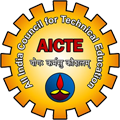
The aviation industry has long been a magnet for young aspirants seeking dynamic careers and competitive salary packages. It offers a world of opportunities and numerous perks that make it a dream profession for many. While cabin crew positions, like becoming an air hostess, often capture the imagination of young girls, the industry also beckons with roles such as Airport Manager, Credit Control Manager, and more.
What are Aviation Management Courses?
Aviation management courses are educational programs that focus on the principles and practices of managing various aspects of the aviation industry.
These courses are designed to provide students with a comprehensive understanding of the aviation sector, including airlines, airports, and related organizations.
The goal of aviation management courses is to prepare individuals for careers in aviation management and help them develop the knowledge and skills needed to effectively oversee and operate aviation-related businesses and services.
Some of the popular Aviation Management courses are
One question that often arises is whether Arts students can pursue aviation management courses. The answer is a resounding yes, and this blog will shed light on the popular aviation management courses and their eligibility criteria for such courses, dispelling any doubts that might linger.
Eligibility for Aviation Management Courses:
1. BBA in Aviation Operations:
This three-year undergraduate program offers a well-rounded curriculum focused on the aviation industry, covering areas such as air transport management, airport operations, passenger traffic forecasting, airport infrastructure planning, marketing strategies, and more.
Upon completion of this program, graduates are equipped with the knowledge and skills required to excel in roles such as airport manager, airport operations manager, air traffic coordinator, or aviation marketing specialist.
The program aims to provide a strong foundation in aviation management to prepare students for a successful career in the dynamic field of aviation.
Eligibility:
- • Aspiring students must have completed their 10+2 examinations in any stream from a recognized board.
- • The minimum requirement for overall marks typically stands at 50%.
- • Admission procedures may vary from one aviation college to another. Some institutions conduct entrance examinations like CET, SET, etc., to evaluate and select candidates based on their performance.
2. Diploma in Aviation Hospitality and Aviation Management
This intensive one-year degree program is a gateway to exciting career opportunities in the aviation industry, particularly for those who aspire to become air hostesses or work in ground staff roles.
The program offers a comprehensive education in aviation hospitality and management, focusing on equipping students with the knowledge and skills needed for a successful career. Throughout the program, students will develop vital abilities, including effective communication, problem-solving, decision-making, and time management, all of which are essential in providing exceptional customer service.
Eligibility
- • Candidates should have successfully cleared their class 12 board examinations in any stream from a recognized board.
- • Some aviation colleges may conduct specific entrance examinations such as NCHMT JEE, AEEE, etc., to evaluate applicants and make selections based on their performance.
Skills Needed in the Aviation Industry:
While your educational background may be diverse, certain skills are crucial for success in the aviation industry. These include:
Exceptional Communication Skills
Effective communication is vital as aviation professionals interact with passengers from diverse backgrounds. Being proficient in English and potentially another international language can be a significant advantage.
Quick Problem-Solving and Decision-Making Skills
The dynamic aviation industry requires quick thinking and problem-solving abilities to address unexpected challenges that may arise.
A Positive Attitude
A positive outlook is essential for overcoming the challenges encountered in the field. It helps in providing excellent customer service and maintaining passenger satisfaction.
Team Player
The aviation industry operates as a team, and effective collaboration is crucial for smooth operations.
Reliability, Outgoing Personality, and Confidence
These traits are valued by aviation professionals as they enhance the passenger experience and contribute to the overall success of the industry.
Pursuing aviation management courses is not restricted to students from specific academic backgrounds. Whether you come from a Science, Commerce, or Arts stream, you can aspire to thrive in the aviation industry. What matters most is a sincere commitment to learning and honing the essential skills required for this dynamic profession. The aviation industry offers an exciting world of opportunities, and with the right mindset and skill set, you can take your career to new heights.
 CCPTR,
CCPTR, 

 National Skill Development Corporation
National Skill Development Corporation Ministry of Education
Ministry of Education MoE's Innovation Cell
MoE's Innovation Cell Institution’s Innovation Council
Institution’s Innovation Council AICTE
AICTE


Leave a comment